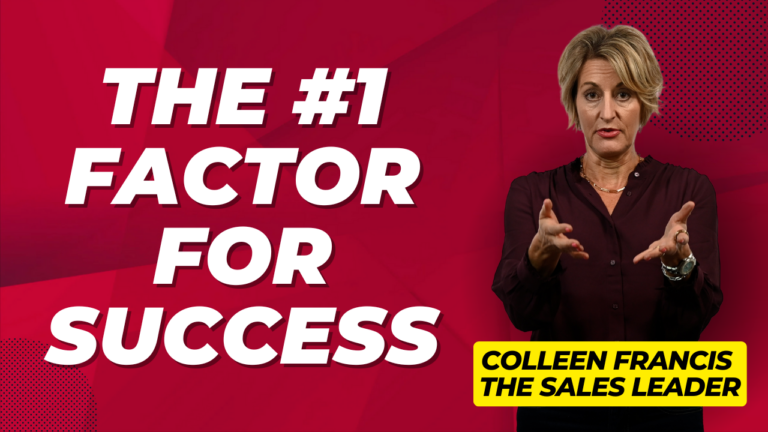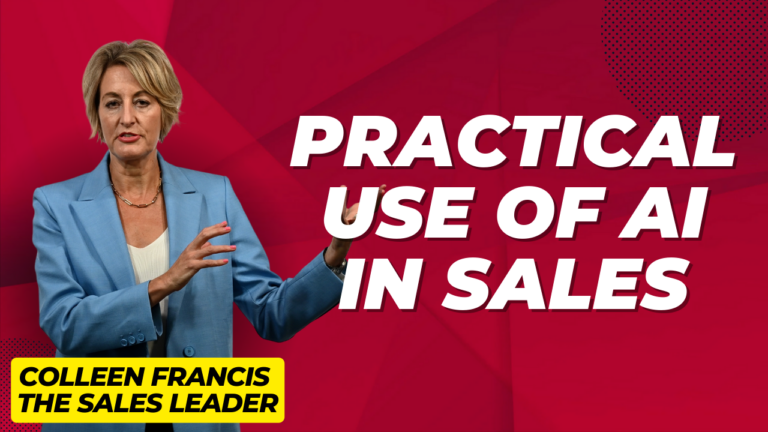Technology in sales is not a solution to a problem. It’s a means of solving a problem, and it hinges critically on how well you apply it as one part of your revenue generation system. Do it wrong and you’re spinning your wheels. Do it right and you‘ll sell to more customers in a way that’s faster and more effective.
To understand the difference, look at a case study from my own consulting work. I work with two different companies in the same industry. They both have the same number of monthly web-based sales leads generated from the same automated marketing platform. But they produce radically different sales results.
Company A does not have a systematic response for managing those leads. They allow for a 48-hour gap between receiving a lead and contacting the prospect, after which they convert 1.3% of the leads to qualified opportunities. They don’t measure their closing rate: even if they closed all of those opportunities, it would only be 1.3 wins for every 100 leads.
Company B responds to each new lead immediately using automated-response software built into their marketing platform. It is mandatory that their sales team respond within one hour to each lead passed onto them. They have a 22% rate of conversion to qualified leads, and they close 80% of those leads. With 17 new sales, they are outperforming the other company by more than a 12-to-one margin!
The difference between these two companies comes down to process: repeatable steps that you must apply diligently to your lead generation process. If you’re not matching Company B’s habits in how you handle sales lead generation, it’s time to sit up and pay attention.
Getting smarter about your lead generation and nurturing process means tackling responsiveness and personalization. That entails four must-do steps:
Strike while the iron is hot—In the examples above, Company B explained to me that leads were 7X more likely to engage with a seller if they responded within the hour. That’s exactly the point of investing in a lead attraction program: to maximize engagement from more leads of higher quality in less time. And let’s face it, if you’re serious about lead generation, you’re also investing heavily in sales and marketing automation platforms. Why in the world would you make that important investment and not maximize your ROI? Your competitors certainly won’t. Hot leads stay hot for only minutes, not days. Implement a one-hour response rate for all new leads: no exceptions.
Get acquainted on a first-name basis—This is old-school selling wisdom that remains as true today as ever: always address your customer personally. Technology, and specifically business AI makes it easier to do this. Remember: people correctly fill-out online forms that ask for their first name for two reasons: because you asked them to and because they expect you to address them personally as a result. Another smart client of mine measured personalization last year and found that when they send automated thank-you messages to inbound web leads—and include the person’s name, company and industry in the message—they get a 128% increase in the open rate and an astonishing 431% jump in the click-through rate.
Break out that coaching whistle and whiteboard—A personalized and responsive lead-generation process doesn’t just give you more leads: it gives you more opportunities to learn, measure and leverage what’s working and what isn’t in your selling methods. It’s no surprise that top performing teams are using detailed CRM dashboards to organize all this data. That includes who the leads are sent to, who is responding, when they are responding, the average size of an opportunity and what the conversation ratios are between all stages in the process. Sales leaders focused on acceleration can then take this data to coach staff. It’s objective: based on real-time data, buying history and other key variables.
Share your greatest hits internally—Share your successes within your organization and do so on a regular basis. In a sense, every success story is like another greatest-hits track on a playlist of wins. Your people can only start to recognize those successes as a familiar pattern if you frame them that way. That’s how you encourage them to adopt your best practices. So when someone closes an important new deal, have them send a note out to everyone in the company and ensure they credit the smart process that made this happen. Our clients who do this also have a higher number of sellers achieving their goals. Why? Because they’re inspired and motivated by the success of their peers.
Notice what all of these must-do steps have in common. They combine systems and people. Sales technology won’t do that for you. There’s no toggle button that enables having a smarter process for managing leads. So take the time to get this right. Recognize the incredible power that sales technology can bring to your organization, but never lose sight of the fact it always requires your people to implement a process to maximize potential.




